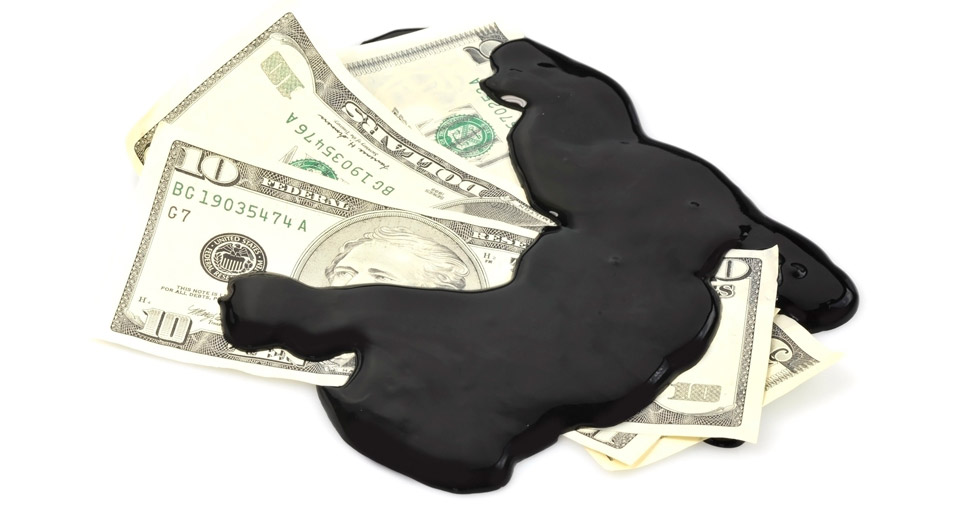Big Oil and its friends in Congress are trying to scrap a 40 year ban on crude oil exports. Despite the overwhelming efforts by the oil and gas industry to change public perception of the bans removal, the public continues to be overwhelming against making a change. The fact that removing the oil export ban would do nothing but allow oil companies to pad its wallets and create yet another consumer giveaway to an already wealthy industry is likely at the root of these sentiments. We must keep the crude oil exports ban in place and reduce our dependence on all oil, domestic and foreign.
For those of you who aren’t familiar with the ban, here’s some background: Passed in 1975, the Energy Policy and Conservation Act (EPCA) authorizes the President to limit exports of crude oil. This has created challenges for Big Oil, who is determined that its oil reach more expensive, international markets.
For everyday Americans who enjoy the current low costs of gas however, it makes no sense to change this policy.
Lifting the ban = warming the climate.
Consider this: Lifting the crude oil exports ban will increase oil drilling on our lands. By the American Petroleum Institute own estimates, lifting the export ban would increase domestic production by 500,000 barrels per day (bpd) by 2020 and 1.2 million by 2030. A similar and independent study was conducted by the think tank Oil Change International earlier this year, which estimates increases at 476,000 bpd by 2020. Every year, an area bigger than Arches National Park will be lost to drilling rigs just so that Big Oil, a collection of the most profitable companies in the world, can drill more.
The environmental effects don’t stop there. Drilling itself is a carbon intensive process that emits methane and other drivers of climate change. And once you drill for oil, you burn it, further adding to the climate crisis. We’ve seen historic action at home and internationally on acting on climate and lifting this policy threatens to derail it all. Here are some climate related estimates from our friends at the Center for American Progress:
“According to the EPA, the combustion of a barrel of crude oil results in approximately 0.43 metric tons of carbon pollution. If U.S. production increases by an average of 3.3 million barrels per day between 2015 and 2035—the high range from the NERA report and the highest estimate in the reports CAP reviewed—then the combustion of those resources will result in more than 515 million metric tons of carbon pollution per year.
“That is the equivalent annual emissions of 108 million passenger cars or 135 coal-fired power plants.”
What about energy security?
Big Oil argues that lifting the Crude Oil Export Ban would increase energy security -- this could not be further from the truth. It argues that supplying European countries with oil dissuades them from purchasing it from those in the Middle East. However, the most current data from the Energy Information Administration shows that in 2013, the U.S. was importing over 9 million barrels of crude oil per day. In 2014, about 27% of the petroleum consumed by the United States was imported from foreign countries. We continue to rely on almost 10 million barrels of foreign oil per day to keep up with domestic demand. In 2020, oil production in the U.S. is expected to reach its peak of 10.6 million barrels per day (bbl/d).
That means that even among the highest projections for U.S. oil production, we will still require oil imports. Ending the export ban will not ensure greater security, it just means that the U.S. will have to import more oil from foreign countries every year.
Changing this policy is going to hurt our wallets and send jobs overseas.
If the exports ban is lifted, domestic crude oil prices are apt to rise, leading to increased operational costs at refineries. This will put thousands of jobs across the country at risk. The United Steelworkers explains how cheaper crude oil prices helps their industry thrive:
“In the last few months the price for U.S. crude has been as much as $20-$25 a barrel lower than that of international crudes. This decreased cost has enabled refiners like Philadelphia Energy Solutions (PES) to operate and upgrade infrastructure at their facilities. PES operates the former Sunoco refinery in Philadelphia, which was slated for closure in 2012 because of high crude oil prices from overseas.”
Exporting American crude would risk the closure of a number of the 140 U.S. oil refineries, leaving thousands of American workers jobless. Refinery jobs are good paying jobs, and support over $1.8 million in value-added per employee. Lifting the ban would not only cost jobs, but it would also hurt the communities that rely on the tax base generated from these wages.
The White House recently came out in opposition to lifting the ban, now it’s time for Congress to follow suit. Tell your member of Congress to oppose lifting the crude oil export ban. It’s bad for the climate, our public lands, our workers, and for our wallets. Take action.
